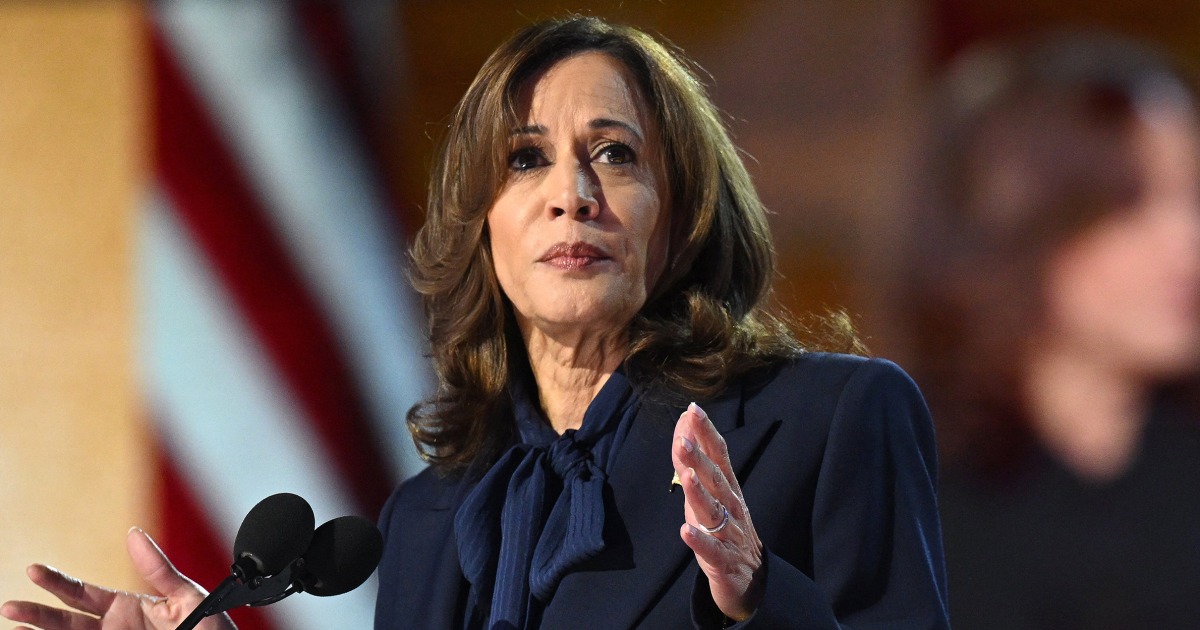Vice President Kamala Harris’ endorsement of a Biden administration plan that includes a tax on stock holdings that have grown in value has emerged in recent weeks as a talking point among conservative pundits and Trump supporters who argue it amounts to socialism or even communism.
Under the current system, the federal government only taxes profits from stock investments — commonly known as capital gains — once a stock is sold. The plan backed by Harris would impose a levy on stock holdings as their value increases, whether they’re cashed in or not.
There is, however, a catch. The proposal backed by Harris would only apply to a narrow — and very wealthy — slice of the population: people whose net worth is at least $100 million. That’s about 10,660 people in the U.S., according to one estimate.
Currently, no such tax exists — something that many advocates across the political spectrum, though mostly progressive-leaning ones, believe should be rectified. By most estimates, the top 1% has approximately 40% of their wealth tied up in unrealized capital gains.
The lack of taxes on capital gains has been considered by some economists and tax experts as a loophole for the wealthy.
Because taxes are imposed only when stocks are sold, the wealthy have deployed a strategy popularly called “buy, borrow, die,” which involves buying assets and borrowing against the value of those assets to buy even more assets. This a tax-free action, which allows for the assets to be passed on to heirs, who end up paying no taxes on the assets. Ultimately, over the lifetime of the ownership of a given asset, no tax is paid.
That the tax would be applied only to the ultra-wealthy — and only to “tradable” assets, thus excluding real estate or shares in private startups — has done little to stymie conservative opposition to the plan, and some on the right have seized on it to argue that Harris would be bad for business.
The right-leaning CATO Institute has said such a plan “raises deeper questions about individual property rights, financial privacy, and due process.”
Former presidential candidate and venture capitalist Vivek Ramaswamy posted a video to X on Wednesday from a recent appearance on CNBC in which he railed against the plan.
“A few weeks ago, I started pointing out that Kamala Harris wants to tax *unrealized* capital gains,” he wrote in the post on X. “The main objection I heard was ‘she’ll never actually do this.’ Now, we’re seeing it’s one of her signature economic policy proposals.”
Ramaswamy’s post was reposted by Elon Musk, one of the wealthiest people in the world. Notably, Musk at one point planned to purchase X by borrowing against the value of his Tesla holdings before turning to a slightly more conventional loan from Wall Street banks to make the acquisition.
Other objections to the Biden and Harris proposal include that the value on unrealized assets can decline by as much, or just as soon, as they’ve increased — meaning someone will have paid a tax on value it never even took advantage of if the stock market tanks.
However, Biden’s proposal addresses this in part by assessing the tax over five years.
Jeff Huggett, a member of the Patriotic Millionaires group, wrote that average American workers experience the same kind of fluctuation in their financial lives, yet are still expected to pay tax each year on their earnings.
“The same should be expected of anyone who makes a killing on Wall Street,” Huggett wrote in a blog post in July.
A new series of legal roadblocks have also been thrown up in a recent Supreme Court’s decision that revolved around the government’s taxing power. While the majority opinion in Moore v. United States, written by Justice Brett Kavanaugh and joined by the court’s three Democratic appointees plus Chief Justice John Roberts, did not explicitly bar a wealth tax, many read the decision — as well as a concurring opinion by Justice Amy Coney Barrett and a dissent by Justice Clarence Thomas — as teeing up a way for future opponents of such a tax to bar its implementation.
Harris’ plan would most likely face difficulty passing Congress: Biden couldn’t get the proposal passed even when he enjoyed slim majorities in the House and Senate in the first part of his term.
Yet as a matter of fiscal prudence, Harris’ proponents also point out that GOP nominee Donald Trump’s budget plan, which revolves around extending his 2017 tax cuts, has been projected by the University of Pennsylvania’s Wharton School of Business to add $5.8 trillion to the deficit over the next decade — nearly five times more than the $1.2 trillion increase estimated for Harris.
Biden has called his administration’s proposal a “billionaire minimum income tax” and has sought a rate of 25%. The Committee for a Responsible Federal Budget has estimated it would raise as much as $503 billion over 10 years. While that would be just a fraction of the $5 trillion in tax increases Biden has proposed, his administration has described it as not only financially prudent but morally necessary.
“Preferential treatment for unrealized gains disproportionately benefits high-wealth taxpayers and provides many high-wealth taxpayers with a lower effective tax rate than many low- and middle-income taxpayers,” a Treasury Department document on the proposal stated. “Preferential treatment for unrealized gains also exacerbates income and wealth disparities, including by gender, geography, race, and ethnicity.”

